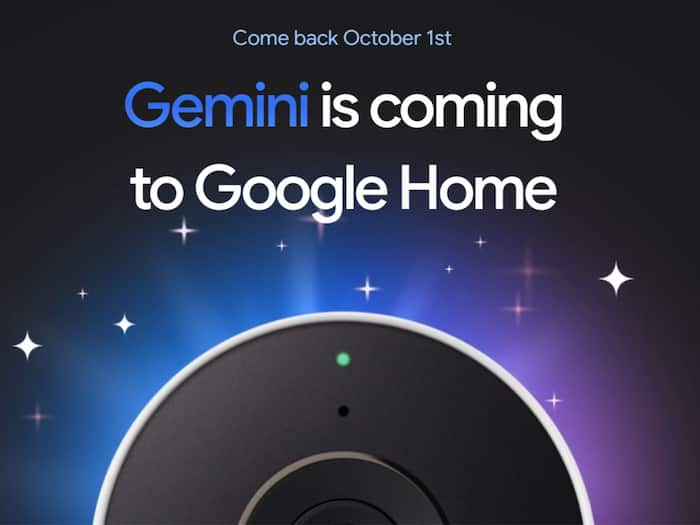
Written By Shubham Arora
Published By: Shubham Arora | Published: Sep 04, 2025, 12:22 AM (IST)

Google has officially announced that its powerful AI model, Gemini, is coming to Google Home devices starting October 1. The company revealed the rollout date in a post on X (formerly Twitter), also inviting users to sign up for updates. This means homeowners will soon be able to interact with Gemini directly on their smart speakers and displays, making Google’s smart home ecosystem smarter and more conversational. Also Read: Elon Musk Takes A Swipe At Google After Confusing Search Result Goes Viral
Gemini’s integration with Google Home has been in the pipeline since Google I/O in May. The AI will allow users to ask natural language questions about their devices, such as checking camera history, and will even suggest automations. Unlike Google Assistant, Gemini can directly set up those automations using simple voice commands, saving users extra steps. Also Read: CES 2026: Google TV Gets New Gemini Features Including Nano Banana And Veo
One of the biggest changes is that Gemini is set to take over most of Google Assistant’s workload. According to Google, the AI is better equipped to handle complex requests. For example, you could ask Gemini to “dim the lights everywhere except the living room,” and it would carry out the task with precision. However, it’s not yet clear if Gemini will fully replace the Assistant or if users will still have the choice to stick with the old experience. Also Read: Getting Scam Texts? Here’s How Circle To Search Can Help
Google Home devices will also gain access to Gemini Live, a feature designed for more natural, back-and-forth conversations with the AI. This makes interactions feel less robotic and more like talking to a human.
Interestingly, Google had previously confirmed that Gemini for Home would come in both free and paid versions. But the company hasn’t shared how it plans to split features between these tiers. Since the October launch will be an “early access” phase, it remains uncertain if both versions will be available right away.